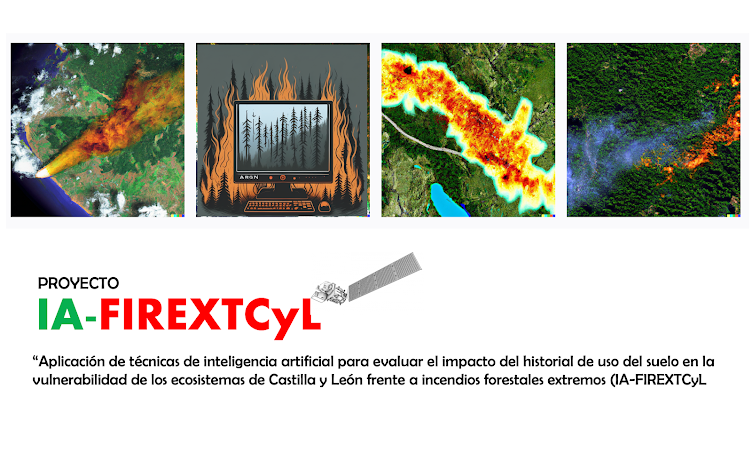TITLE OF THE PROJECT:
Application of artificial intelligence techniques to assess the impact of land use history on the vulnerability of ecosystems in Castilla y León to extreme forest fires
ACRONYM OF THE PROJECT:
IA-FIREXTCyL
SUMMARY OF THE PROJECT:
Climate change, along with the accumulation of flammable fuels and anthropogenic ignitions during periods of adverse weather, has caused an increase in the prevalence of extreme wildfires in Mediterranean ecosystems around the world, including fire-prone ecosystems in Castilla y León. Extreme wildfires pose a significant ecological and social threat, especially for rural populations. In this context, the IA-FIREXTCyL project will offer new scientific knowledge on the biophysical contexts and socio-economic factors that determine the most severe ecological impacts on forest ecosystems in Castilla y León. This will have implications for the conservation of biodiversity and the provision of multiple ecosystem services to society. Thus, the historical trajectories of land use that promote forest fuel types prone to extreme fire behavior will be identified, and new perspectives on the impacts of extreme forest fires on the resilience of plant communities and the multifunctionality of ecosystems will be provided. Also, the response of ecosystem multifunctionality in areas where extreme forest fires overlap with previous fire disturbances will be evaluated, as well as the interactive effects between extreme forest fires and future climate change scenarios. The fire-prone ecosystems affected by extreme wildfires in recent years in Castilla y León represent laboratories to address this project. To achieve the objectives, the use of artificial intelligence (AI) algorithms and advanced physically-based remote sensing techniques will be leveraged to obtain reliable estimates of severity and fuel model type in different ecosystems. AI-based algorithms will help to identify complex causal relationships, as well as nonlinear relationships and interactions between the response of aboveground and belowground communities to extreme forest fires and their effect on multifunctionality. The project objectives fall within the priority "Carbon-neutral and fully circular Castilla y León" of the Regional Research and Innovation Strategy for Smart Specialization of Castilla y León 2021-207- (RIS3), as they will allow the development of innovative tools that help identify management strategies aimed at reducing the vulnerability of the region's natural capital and biodiversity, which represent the basis for the provision of goods and services to society, particularly to rural populations dependent on forest systems.
KEY WORDS OF THE PROJECT:
Large forest fires, indicators, severity, resilience, exotic species, ecosystem services, pre and post fire management
 |
